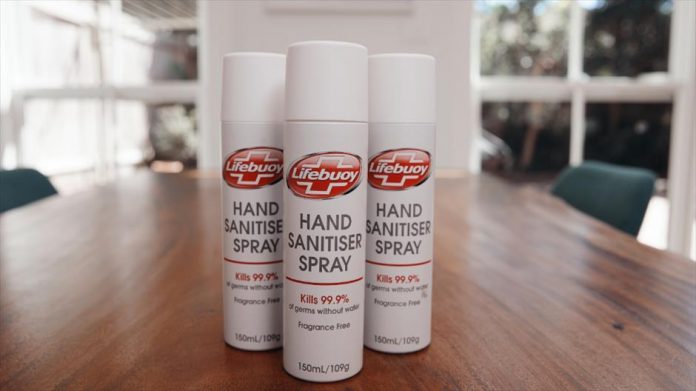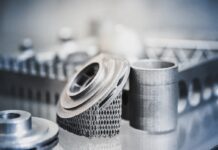
Media Release
Unilever Australia & New Zealand (ANZ) will start producing hand sanitiser locally as it redirects existing deodorant production facilities to help meet national demand and help in the fight against COVID-19.
The new 150ml aerosol hand sanitiser, which contains 70% alcohol and kills 99.99%[1] of germs without water, will be produced in NSW, marking the return of Lifebuoy’s local production to Australia.
Unilever donates AU$1million worth of hand sanitiser to Foodbank
To ensure Australians and New Zealanders in need have access to this highly sought-after product, Unilever will donate 150,000 cans – valued at over AU$1m ($7.50 RRP/can) – to its longstanding partner, Foodbank, to manage distribution across Australia and New Zealand. The sanitiser will also be made available to the wider public and will hit shelves by the end of May in leading supermarkets.
Nicky Sparshott, CEO of Unilever Australia & New Zealand, said, “Unilever has a long history of contributing to personal hygiene in Australia and New Zealand and across the world – beginning with the creation of Sunlight soap by Lord Lever in the late 1880s.
“We believe we have a social, medical, and moral obligation to make hand hygiene readily available. That’s why we’re responding to Government calls to action to increase supply of essential products by rapidly innovating and re-directing some of our Australian manufacturing.”
Unilever Australia donates additional AU$1m worth of homecare, personal care and food products
In addition to the AU$1m donation of hand sanitiser, Unilever will also donate AU$1m worth of essential homecare, personal care and food products to Foodbank to distribute across Australia, including leading household brands Comfort, Sunsilk, Love Beauty and Planet, Simple and Continental.
Unilever has also contributed funds to help Foodbank NSW & ACT with contingency staff costs, following volunteer number reductions as a result of social distancing measures.
Brianna Casey, CEO of Foodbank Australia said: “We are so grateful for this incredibly generous donation of much-sought-after sanitiser and other essential household items from Unilever.
“Foodbank has seen a 50 percent increase in demand for food and grocery relief due to job loss and small business closures across the country and donations such as food, personal care and cleaning products are critical.
“Thank you to everyone at Unilever for your ongoing commitment to Foodbank which enables us to support Australians not only now during this COVID-19 crisis, and for the long haul.”
Ms Sparshott continued, “We know our brands can play a big role in bringing both hygiene and comfort to everyday life, particularly while we all spend more time than ever at home. Whether it be providing a nourishing meal for the family, or keeping the home clean, Unilever is proud to play its part in helping Australian and New Zealand families stay safe amid the COVID-19 pandemic.”
Unilever brands rally together to protect the lives and livelihoods of Australians
Through its portfolio of purpose-led brands, Unilever will continue to explore other ways to support the local community. Other support provided to date, includes:
- Donating Dove soap to the NSW Department of Education for distribution to schools experiencing shortages;
- Unilever Food Solutions partnered with @Yume to create a nation-first, online marketplace for food distributors to address market imbalances.
“From the outset, our business has always been driven by a sense of purpose – a thread that connects us to our founding companies and their social missions to improve the health, hygiene and livelihoods within their communities.
“At Unilever, we have a firm belief that business must make a positive contribution in addressing the challenges the world faces, and this has never been more pertinent than right now. Our longstanding heritage in serving the community has enabled us to act quickly at a time of need and it has been inspiring to see what the power of collective action can achieve in the face of such unprecedented challenges,” concluded Ms Sparshott.
[1] 99.999% of Staphylococcus aureus and Escherichia coli
Image Credit: www.unilever.com.au



















